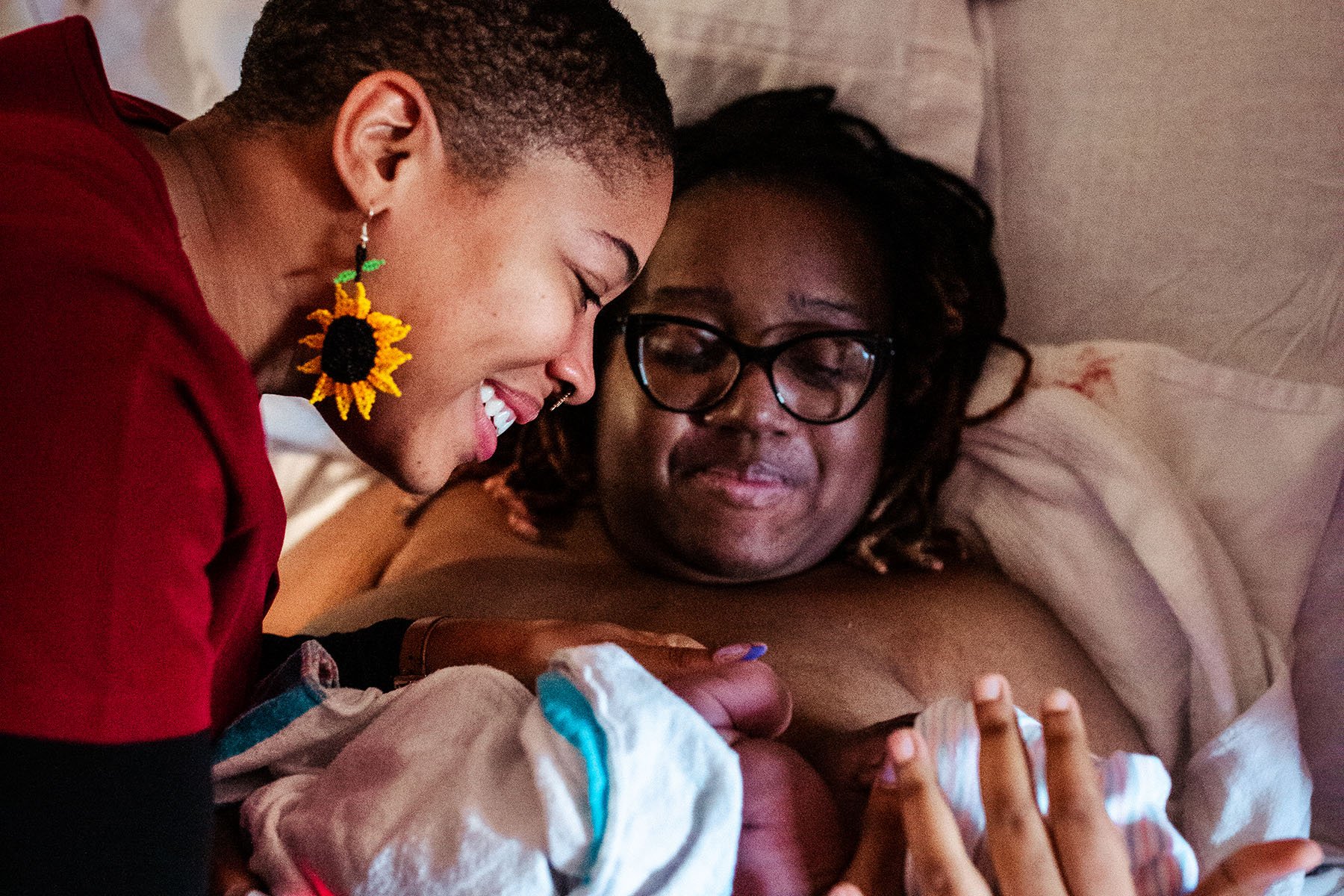After Selena Williams had a child, she found that along with her excitement of a new baby was disappointment due to insufficient postpartum support. Williams describes leaving the hospital with concerns about the lack of follow-up care she would receive.
“I’m a single mom by choice,” Williams said. “I was in the hospital for about three days, and then they were just like, ‘OK, good luck!’ I just was floored — like wait, that’s it? I don’t see someone for six weeks and that’s normalized?”
After months of frequent visits with medical providers, she felt whiplash.
“I had so much support while I was pregnant, so for that support to just all of a sudden drop off was a huge shocker for me,” Williams said.
Williams’ experience led her to co-found Ziva Postpartum Retreat — the first full-service overnight offering of its kind in North Carolina — along with Lauren Hall.
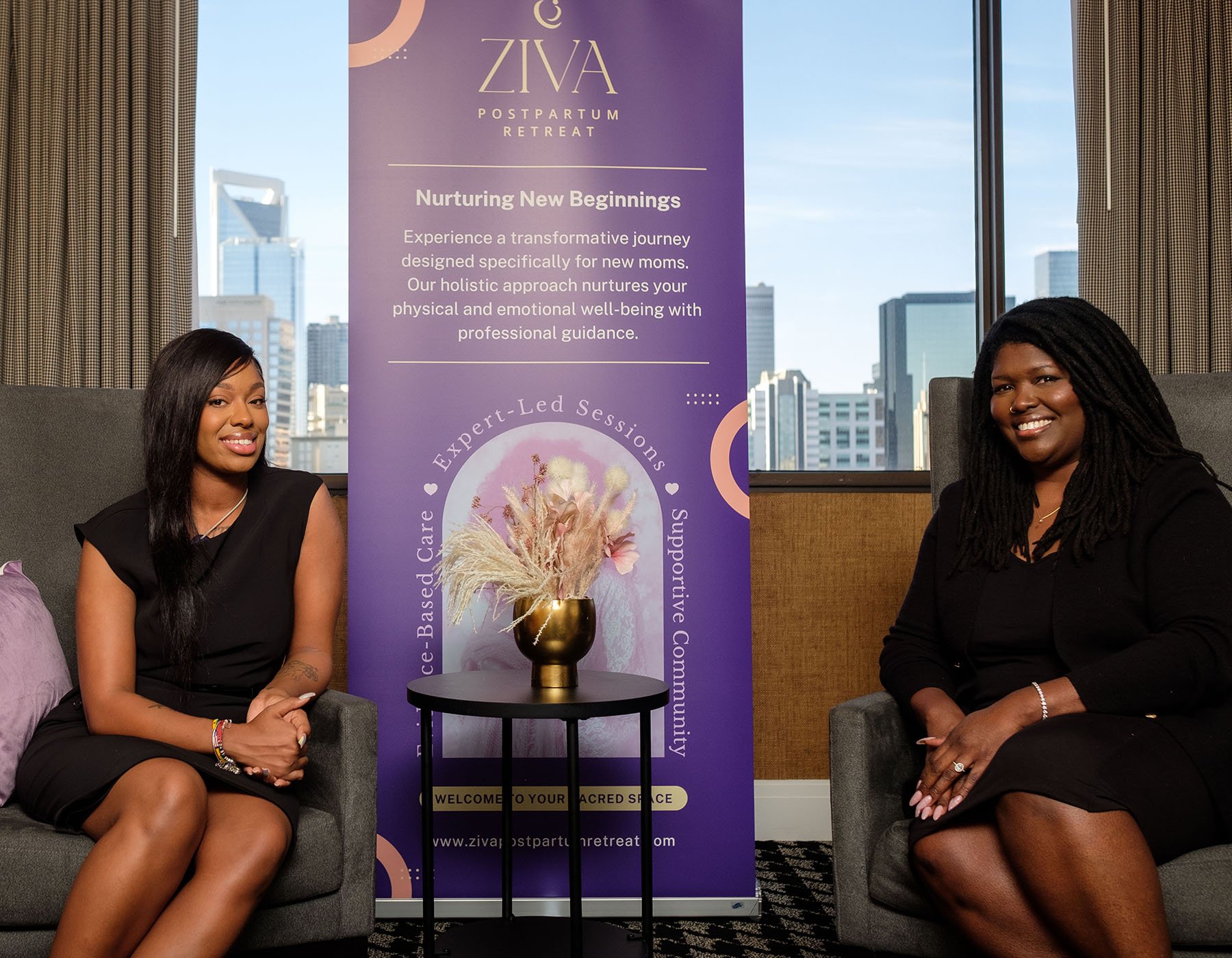
With many birth-related complications occurring postpartum, the need for parents to focus on themselves following childbirth is vital — especially for Black birthgivers like Williams and Hall. The maternal mortality rate in the United States is significantly higher for Black people, who are nearly three times more likely to die during or just after childbirth than White people, according to the Centers for Disease Control and Prevention. According to a 2023 National Institutes of Health report, up to 44 percent of Black people experience postpartum depression but few are properly diagnosed and provided mental health services.
There are multiple organizations working across the South that are working to fill gaps in postpartum care, from new retreats like Ziva to established practices like doula care.
According to the American College of Obstetricians and Gynecologists, postpartum care that encourages ongoing services optimizes the health of birth givers and their children. Alongside postpartum doctor’s visits, parents should seek longer-term care that is tailored to their needs.
“There is definitely a big gap in our postpartum care. No one pays attention to the things that are not mentioned like postpartum anxiety, postpartum depression, there’s even postpartum psychosis. These things are just not talked about, so I feel like bringing these postpartum centers like Ziva to Charlotte and other areas will help address these issues,” Hall said.
‘I want [parents] to feel empowered when they come here’
Located at the Le Meridien Sheraton Hotel in Charlotte, the Ziva Postpartum Retreat offers services such as lounges, doula care, lactation consultations, meals and child care. Add-on services like massage therapy, nail care, belly binding and postpartum talk therapy are also available.
Packages range from three to seven nights, and attendees are able to bring one partner or support person with them. The retreat opened on February 1, and online booking has been available since November 1.
Williams and Hall are focused on creating a space where parents can have autonomy over how they want to heal without attempts from those in their circle to project decisions onto them.
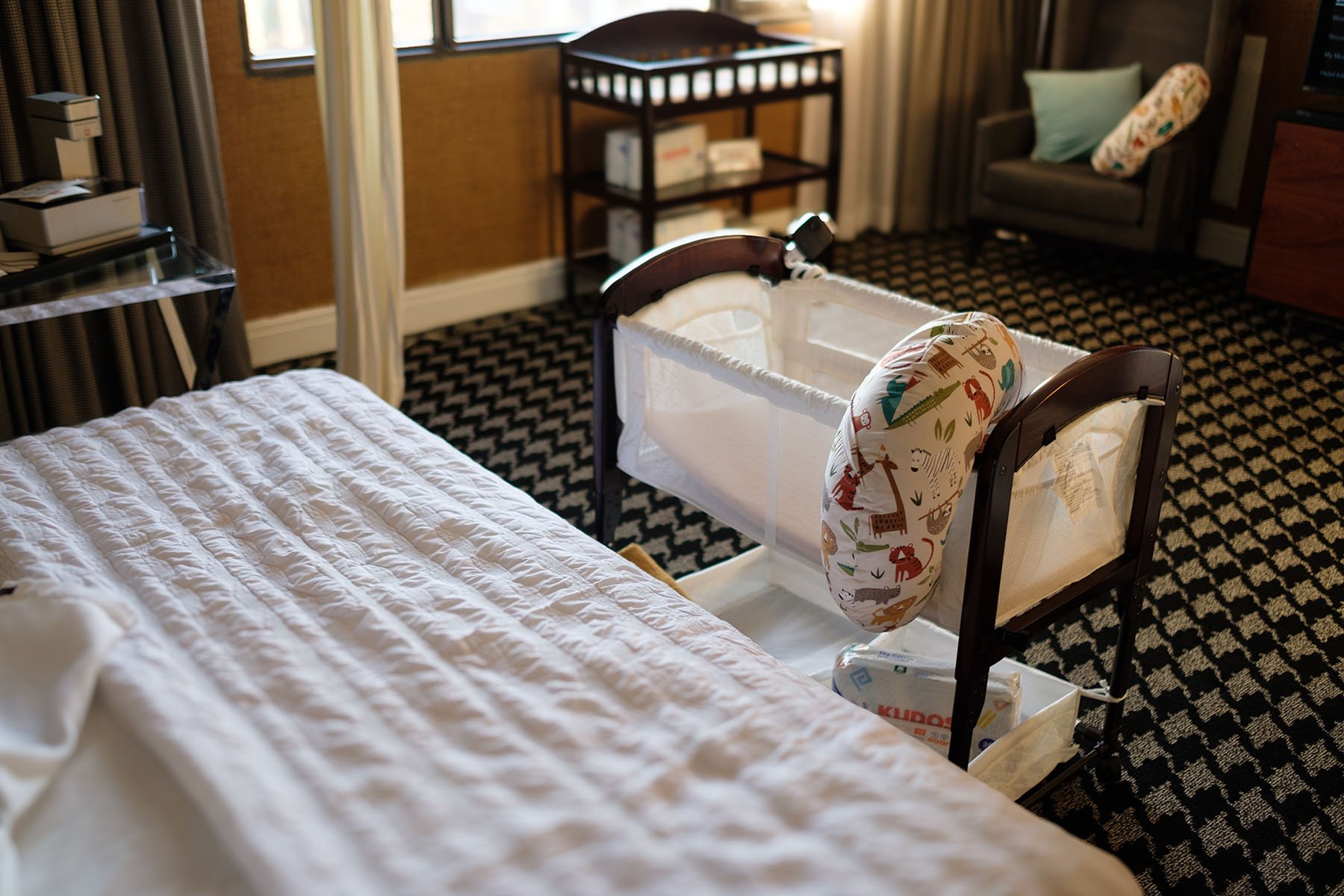
“We want this energy where moms take control of their motherhood. … A lot of people try to take our power away while we’re pregnant, while we’re giving birth and afterwards,” she said. “I want them to feel in control of their treatment, in control of what they want to do with their babies, and in control of their own well-being and healing.”
‘We’re trying to keep information available because we know that that’s life-saving’
The 4th Trimester Project connects postpartum people with health care providers and researchers to enhance knowledge about the postpartum period.
With a team including educators and nurses, the organization has partnered with academic institutions to bring free resources to parents. Parents can access video reels, informational checklists and virtual training that addresses mental health, physical wellness and postpartum warning signs via their website.
“There are definitely studies that show that when someone is given a little bit of anticipatory guidance about what is to come, they kind of know this is what [health care professionals] said would happen. This is a common thing. We see that this can reduce depression and increase lactation just because people aren’t afraid,” said Dr. Sarah Verbiest, director of the Jordan Institute for Families at the University of North Carolina School of Social Work.
-
Read Next:
According to a study published to BMC Pregnancy and Childbirth, postpartum education can help to reduce maternal mortality and morbidity. Postpartum visits are a critical time to provide information on reducing risk of postpartum complications that can lead to serious injury or death.
Established in 2016, the project was designed with the real-life experiences of moms in the fourth trimester, the non-medical term for the first 12 weeks post-birth.
“We pulled together a lot of folks with brand-new babies and we really unpacked every single bit of the fourth trimester. [We discussed] what we wished that we knew in terms of what research studies we want to do, what a normal recovery would look like,” Verbiest said.
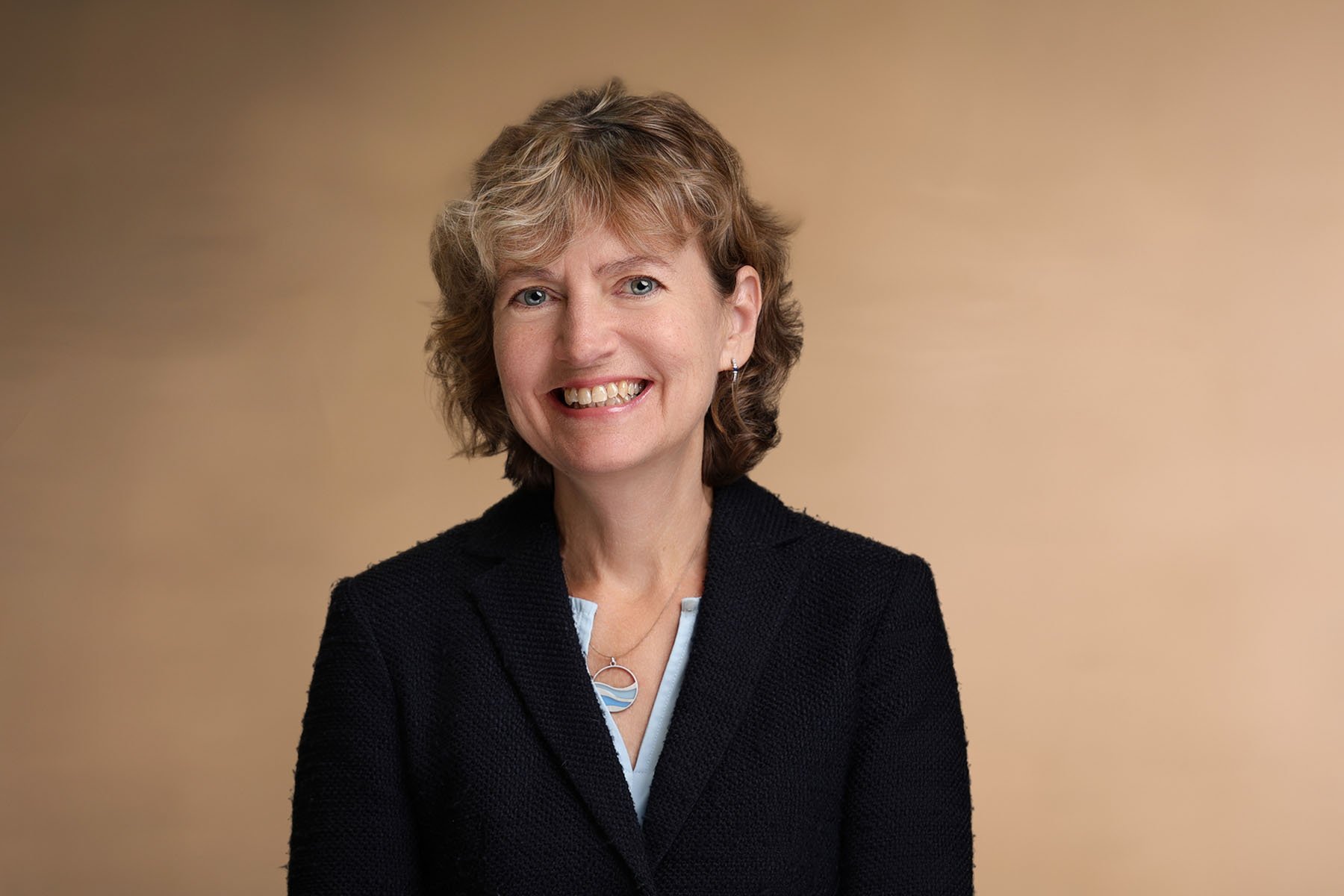
The project’s team found significant gaps in postpartum care, including little to no tangible assistance in postpartum doctor’s visits. This concern inspired the 4th Trimester team to develop tools with specific questions that parents can reference to consider all their health needs.
“[The postpartum visit] tends to not be the most in-depth visit. So we’ve got some tools so that people go in like, ‘This is my question, and this is what I need to know,’” Verbiest said. “We also have important one-pagers because sometimes when people have a baby they just get a dump of all this material, and who has time to do that when you don’t even have time to shower?”
Inequities in maternal health related to race and ethnicity have not gone unnoticed by the project’s team. They recognize that the tools they provide, including information translated into Spanish, can act as a resource for parents who experience discrimination in the health care system.
“We also see bigger biases based on the way someone looks,” Verbiest said. “That needs to be taken into consideration. Also, how easy or hard it is to access needed services and how that feels when those services are needed because of historic and structural barriers that make it harder for certain families to get ahead than others.”
-
Read Next:
‘While everyone else is thinking about the baby, I am thinking about mama’
Atlanta-based postpartum specialist and doula Danielle Lyles Barton believes that focusing care on the birthing person is just as vital as focusing on the baby.
“The person who just gave birth, their body is healing from a major event. They’re not able to do what they were able to do beforehand. They need some support physically, spiritually, emotionally, mentally,” she said.
Postpartum doula responsibilities include assistance with newborn feeding, light housework, meal preparation, healing practices, helping with partner and sibling adjustments and referrals for concerns requiring medical attention. The care they provide is tailored to the unique experiences of each parent.
Doulas can contribute to better outcomes in parents’ transition following birth. According to the International Childbirth Education Association, an organization that trains professionals in perinatal care, postpartum doulas increase parent confidence, improve breastfeeding outcomes and lessen incidences of postpartum depression.
Lyles Barton focuses on both the mind and body, making her approach to postpartum care more intimate. In her five years of service, she said, she has acted as a guide to ground parents after the transformative experience that is childbirth.
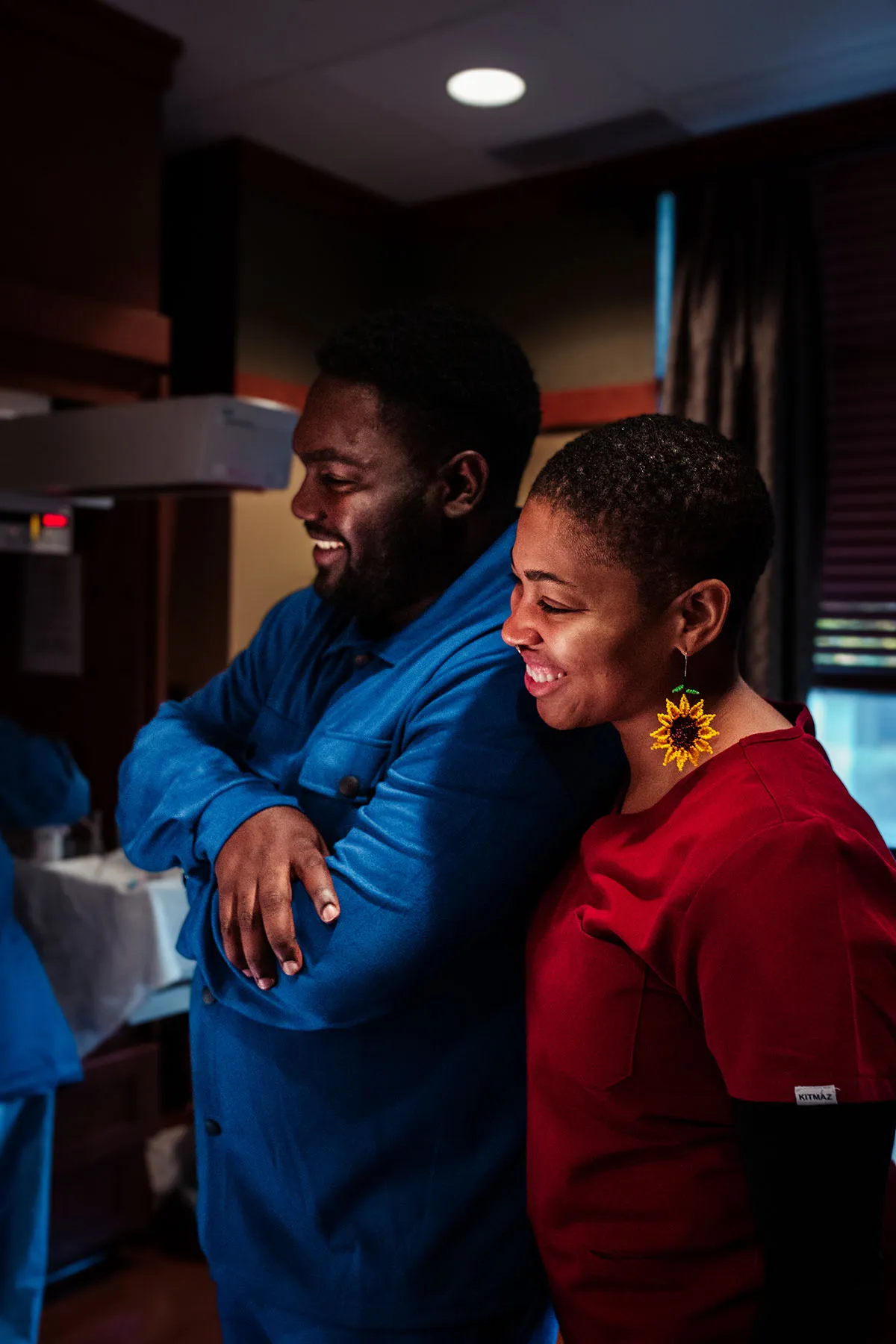
“We’re also doing meditation and very important visualization as they’re navigating their rebirth,” Lyles Barton said. “Another thing that a lot of parents mention as they’re experiencing this is, ‘Oh my goodness, this is the first time that I’ve had 15, 20 minutes of uninterrupted time.’”
Lyles Barton also provides bodywork, a form of therapeutic touching, to parents who are interested in receiving hand-on forms of support.
“I’m very [intentional] on warming the belly, and I do that through belly massage and bodywork,” she said. “We store a lot of emotions, memories, traumas in our bodies, especially in our hips, especially in our bellies. And so, by providing that touch, providing that massage and those adjustments, it’s also helping to move and shift that out of the body.”
The International Childbirth Education Association describes the postpartum doula’s goal as “mothering the mother.” With services ranging from full days, partial days, overnights or weekends, parents have access to this support at times that work best for them.
Lyles Barton believes that doula care in the postpartum period is directly tied to the birthing person’s need to center their body in order to have a healthy healing process.
“Birth looks different every time, even if this is the mama’s third, fourth, fifth, sixth baby,” she said. “Every time it looks different, it feels different. They themselves, then, are different on the other side of that.”
